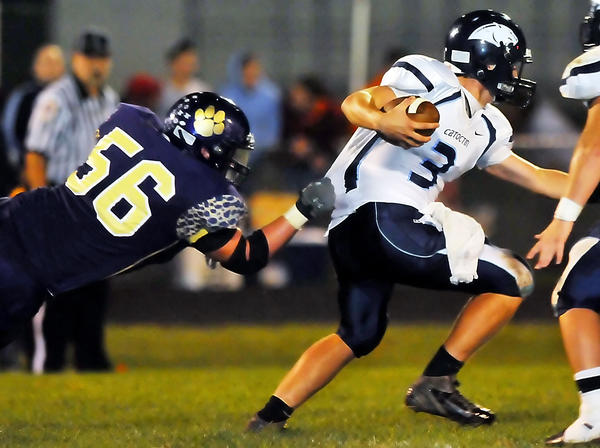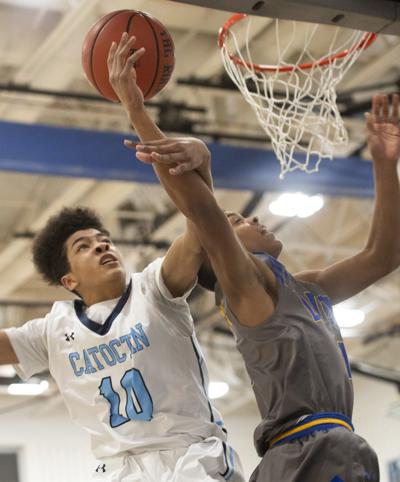
Weight Training Advice for the Young Athlete
Let us assume that you have a son who's an athlete around 12 years old, he's itching to get started weight training, and he's itching to get stronger and bigger and better at athletics.
Where to begin?
First of all, quality instruction is imperative, and it is tough to find someone who really knows what they are talking about. If there is a university close by, I would email or call the strength coach there and either pay him to teach your child the proper form on the clean, barbell squat, press, bench press, deadlift and all the assistance work. Or if the strength coach can't work with your kid, ask if there is anybody that he recommends as a quality instructor. Or research a performance place with experienced coaches, someone who has some years behind them in the coaching world. It's tough. Because there are plenty of folks that I know who have this or that certification but don't know what the hell they are doing. Certifications are important, but experience plus the certifications are better. What certifications should you look for in a coach? I’d say the CSCCA or CSCS.
The issue here is that your kid can get messed up for a long time with just a little bit of shitty instruction. So choose wisely and ask questions. Every coach who is teaching your kid should know why a movement is important to do, what muscles the movement works and how it will help your child athletically. In fact, before anything physical happens with your young athlete, sit down with the coach and ask questions. What is the coaches philosophy on training young athletes? What about frequency of training? Ask about his experience training youngsters and the best exercises that they should use in their program. If these questions can't be answered satisfactorily to you, simply leave and keep searching. Oh, and remember, you must pay for quality instruction. One hundred dollars an hour is about right for this teaching. And don't be cheap when it comes to this, I promise that it will be worth it.
When your child begins with the coach, the instruction should be thorough. If it's the squat that is being taught, they should go over everything involved with the lift. This includes squat rack height, hand placement, getting under the bar and the proper position on the back, taking the bar off of the rack, the steps taken to clear the rack, stance width and the correct one stance width for your child's body type, chin and eye position, the proper starting position, where the pressure should be on the foot, the descent and ascent including speed and the proper way to put the bar back on the rack. Included in this instruction should be the proper way to spot the squatter. All of this is so important that nothing should be left out. Again, your kid is going to be lifting weights for a long time and you want him to start out correctly so that he doesn't create bad habits that are tough to break and to prevent injuries.
All of the instruction on all of the lifts should be handled in the same thorough manner. I don't care if it takes an hour or more to get the squat right, it's that important.
If your kid is super active in a bunch of sports and activities, three days of lifting weights should be plenty. And he doesn't need to stay in the gym forever. You crush your kid like that, and he won't want to go back to the gym. Work them hard and get out. As far as actual training time, thirty minutes is fine. And he doesn't need to be going crazy trying his one rep max in everything over and over. One of the keys to keeping them going is to focus on any improvement that they make. That could mean completing one more rep than last time or adding five more pounds than last time. Maybe they compete the workout quicker or their squats are deeper. There is always something to measure improvement without using max weights. The reason that I am saying that "maxing" all of the time is not needed is because when attempting a maximum repetition invariably form breaks down (rounding back on deadlift, bouncing and butt coming off of the weight bench in the bench press, legs splitting awkwardly in the power clean) and the chance of injury skyrockets. So just "grease the groove" in the exercises. Learning to perform the exercises properly is a skill. Give them plenty of time with medium heavy weights to learn the skill. As far as repetitions, in the main lifts low reps would probably be best. Form starts to break down in the squat and deadlift and clean with higher reps. In the squat, deadlift and the clean, two to five reps is good. They are always better off performing 10 x 3 versus 3 x 10. In addition, their getting up properly ten times versus just three times.
It is also important during this time in the child's development that he play a variety of sports. If the kid wants to be a football player, they shouldn't just focus on football drills all year. Have him play basketball. Basketball is wonderful because all of the movements: running, jumping, backpedalling, shuffling, shooting, sprinting etc, transfer over into almost all sports. And who wants to be in 6th grade and do a bunch of cone drills? Boring. He can get a lot more out of it all plus the added competition through basketball, even if it's just frequent pick up basketball. Even if he isn't very good at it, he will still benefit. Lacrosse is good also, as is Muay Thai. In fact, if he could play basketball and practice Muay Thai, he will be a better athlete. I could always tell right away if I was working with the college football freshmen (especially the offensive linemen ), and they had never played other sports besides football. They were usually only effective going straight ahead, and their awareness of their body while moving was poor and their side to side movement was not so great, either. So no matter what sport that your child is getting prepared for, have them play a bunch of sports and if you have to choose a couple of activities to improve their athleticism, choose basketball and Muay Thai.

If your child is a basketball player, be conscious of having them play year round. My last few years of coaching in college, there seemed to be a huge influx of kids coming into their freshman year already hurt. The athletic trainers were saying that they were overuse injuries, the fact that the athlete repeats the same movements over and over. That may be the case, but also I believe that the kids play so much that they never have an off season to get strong. Every athlete needs a good three month period of the year without competition. They can use this time to get strong and rehab injuries. They can still practice their skills, just don't get crushed traveling and playing and never resting. Listen, they must have a down period. They will burn out physically and mentally without it. Even if your kid is tough as nails, force them to take time off. It will pay dividends in the long run.
If you do decide to have your child join a sports performance place, there should be very little standing around when they are performing drills. Repetition is a huge key to learning here. I have to admit that standing around is one of my pet peeves. Get the kids moving! And if there are five lines of kids, five deep and your kid gets just a few repetitions, it was a waste of your money. The instructor should be prepared, the kids should be always moving or with very short breaks, and the instructions to the athletes should be clear and concise. And the instructor should always explain the reason for the drill and what the drill is working on. If they are "winging it", just head on out.
There is probably not a big need for your young athlete to practice running form drills, unless he's getting ready for track. Better off getting strong and have fun playing. He can do all drills that waste his time when he gets to college. Don't worry about practicing the 40 yard sprint , just have your kid move in every direction. And be careful about plyometrics, all that jarring can be tough on a growing boy. Box jumps are fine, have him jump on and step off. He's gonna be jumping enough with basketball, anyway.
And one more thing: Take it easy on the kid when he is just starting out. Have patience with him and don't be that asshole Dad who tells everybody how great his kid is at everything, all the while criticizing him for not doing stuff right. Getting strong takes time. Being coordinated at new skills takes time. Usually the parents who are the loudest were the ones who never played much at all. I hear them in the stands at little league games. Its' unreal how they talk to their own child and to the coaches. If you want your young athlete to succeed, make him love it by giving him a little space and letting him have some fun.
I hope this article helps with the training of your child. It's an important time for them, an opportunity to set the correct form and technique and establish a lifetime of love for training. Let me know if you have questions, I'd be glad to answer them.
About The Author
Jim Steel has been immersed in athletics and the Iron Game for most of his life. He has been a college football player and coach, powerlifter, Muay Thai fighter and is currently a competitive bodybuilder. In 1999, Steel was named Assistant Strength and Conditioning Coordinator at the University of Pennsylvania, and moved up to Head Strength and Conditioning Coordinator in 2004. He is the owner of the blog basbarbell.com, and is a motivational speaker, frequent podcast guest and the author of two books, Basbarbell Book of Programs and Steel Reflections. Steel is a Certified Strength and Conditioning Specialist with the National Strength and Conditioning Association.

